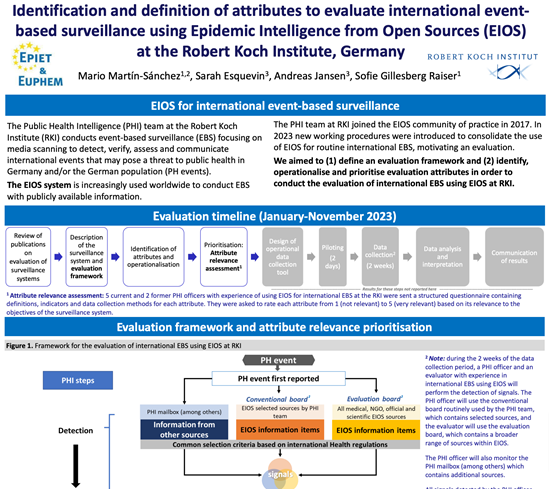Publications
Publications included in this section showcase articles describing practical use cases of the EIOS initiative or in which the EIOS system is analysed, evaluated, or compared to other public health intelligence systems. The EIOS Core Team makes no claims or guarantees about the completeness, accuracy, content or quality of information contained.
WHO Publications
Epidemic Intelligence from Open Sources (EIOS) Strategy 2024—2026
The EIOS Strategy 2024–2026 outlines the World Health Organization’s (WHO) coordinated approach to strengthening public health intelligence...
Impact of using the Epidemic Intelligence from Open Sources (EIOS) system for early detection of public...
Epidemic intelligence, which integrates event- and indicator-based surveillance, requires systematic, organized collection, analysis and interpretation...

WHO's Operational Update on Health Emergencies - January 2025
WHO's Operational Update on Health Emergencies, published monthly, highlights WHO’s work on preparedness and emergency response, combating health...
Global public health intelligence report 2022
Early detection and rapid response to health threats and emergencies is one of the World Health Organization’s (WHO) most important priorities....
Poster
External Publications
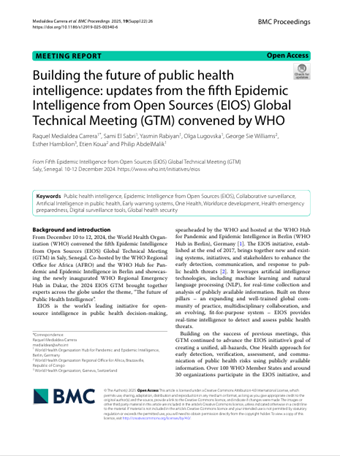
From December 10 to 12, 2024, the World Health Organization (WHO) convened the fifth Epidemic Intelligence from Open Sources (EIOS) Global Technical Meeting...
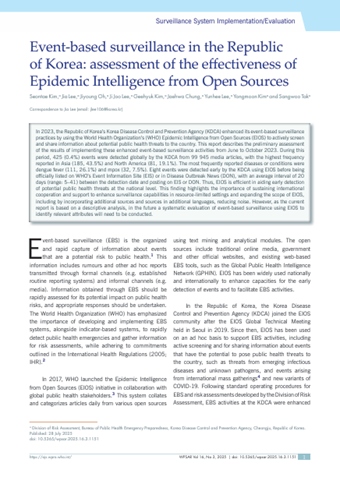
In 2023, the Republic of Korea’s Korea Disease Control and Prevention Agency (KDCA) enhanced its event-based surveillance practices by using the World...
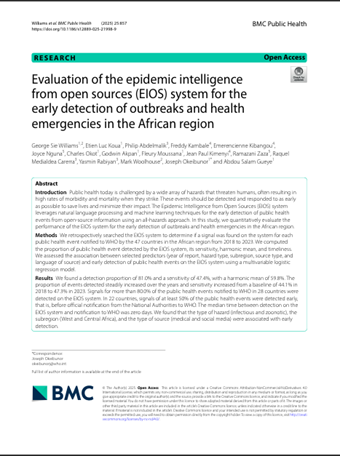
Public health today is challenged by a wide array of hazards that threaten humans, often resulting in high rates of morbidity and mortality when they strike....

In 2021, the National Institute of Infectious Diseases, Japan, undertook enhanced event-based surveillance (EBS) for infectious diseases occurring overseas...

Essential public health functions: the key to resilient health systems
It has become increasingly important that we develop greater global consensus on the definition and scope of public health services if system strengthening...

The use of artificial intelligence (AI) to generate automated early warnings in epidemic surveillance by harnessing vast open-source data with minimal...

The coronavirus disease 2019 (COVID-19) pandemic event has shown how communicable diseases can spread faster and further than ever before because of globalisation....

Epidemic intelligence activities are undertaken by the WHO Regional Office for Africa to support member states in early detection and response to outbreaks...
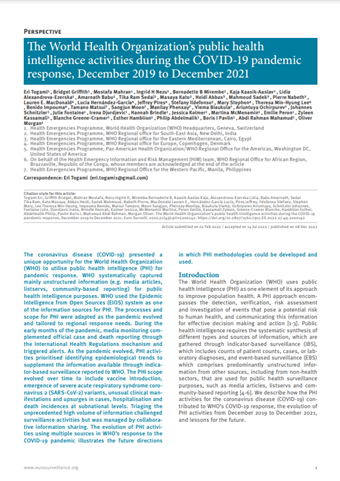
The coronavirus disease (COVID-19) presented a unique opportunity for the World Health Organization (WHO) to utilise public health intelligence (PHI) for...
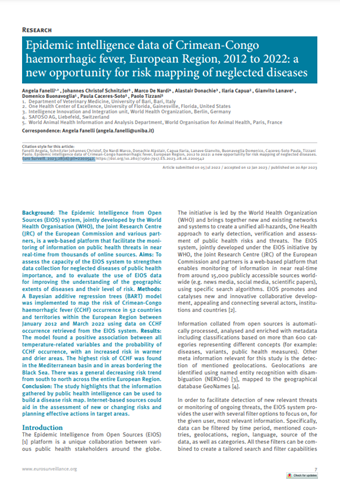
Epidemic Intelligence from Open Sources (EIOS) initiative provides a means of disseminating information among public health agencies. In this study, we...
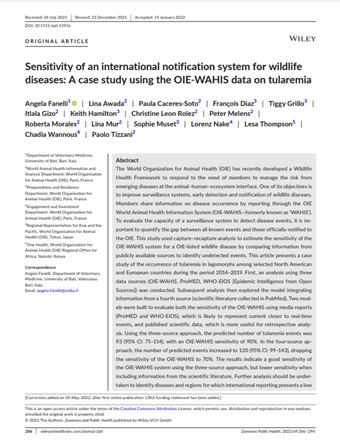
The World Organization for Animal Health (OIE) has recently developed a Wildlife Health Framework to respond to the need of members to manage the risk...
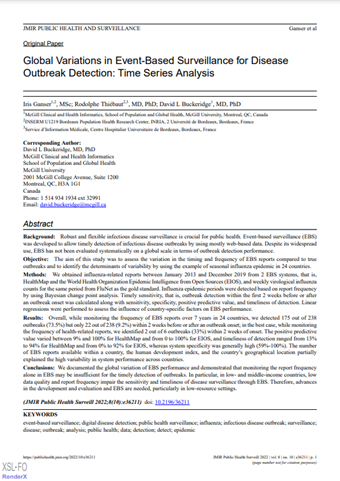
Global Variations in Event-Based Surveillance for Disease Outbreak Detection: Time Series Analysis
Robust and flexible infectious disease surveillance is crucial for public health. Event-based surveillance (EBS) was developed to allow timely detection...
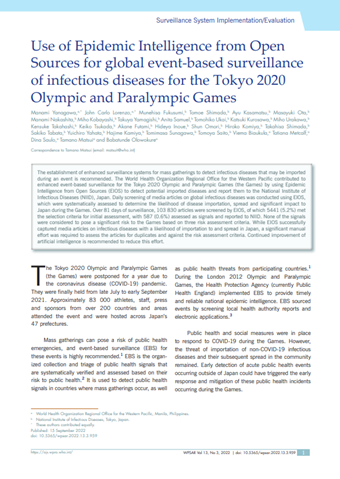
The establishment of enhanced surveillance systems for mass gatherings to detect infectious diseases that may be imported during an event is recommended....

